HHS Study Abroad reembarks on immersive education, research overseas
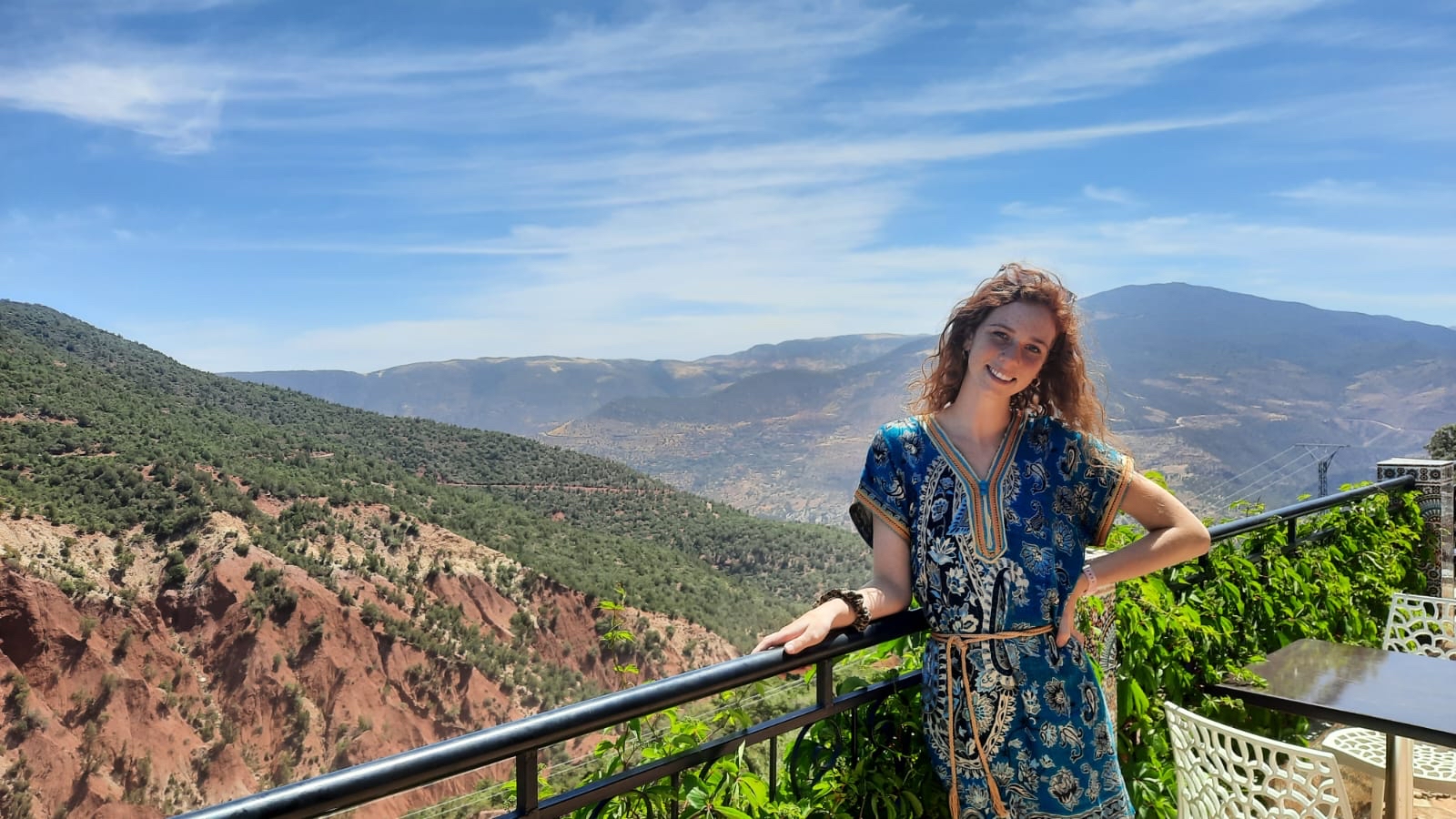
After a two-year hiatus due to the COVID-19 pandemic, the Purdue College of Health and Human Sciences’ study abroad programs returned. Riley Plummer, who graduated in May, was still able to experience how families operate and how children learn in Morocco. She said the program was the perfect final Purdue experience for her.Photo provided
Written by: Tim Brouk, tbrouk@purdue.edu
Howard Adler may not have been everywhere, man, but he has led more Purdue University College of Health and Human Sciences (HHS) students overseas to new experiences and core memories than most.
A professor emeritus in the White Lodging-J.W. Marriott, Jr. School of Hospitality and Tourism Management (HTM), Adler has organized 32 study abroad classes to Europe, Australia, Asia and South America, reaching back to the 1980s.
“For many students, they have never left the country before. They need an opportunity to expand their horizons and learn about what it is to travel and learn about a different culture, a different environment,” said Adler, who led an HHS-wide Maymester program to Greece with 26 students in the spring. “Doing it during their four-year stint at Purdue is really an ideal time for them to be able to do this. … It’s an eye-opening, lifetime experience that they’re always going to remember.”
After a two-year hiatus due to the COVID-19 pandemic, HHS study abroad returned in May. Dozens of students took advantage of the opportunity to learn more about their program while immersing themselves in new cultures. They learned from scholars overseas, conducted research with their peers from other counties and worked side-by-side with foreign communities — all while enjoying the sights, sounds and tastes from Ireland, China, Ecuador and more.
Study abroad programs are being organized for 2023. But first, students and faculty reflect on being able to study abroad for the first time since 2019.
Greece
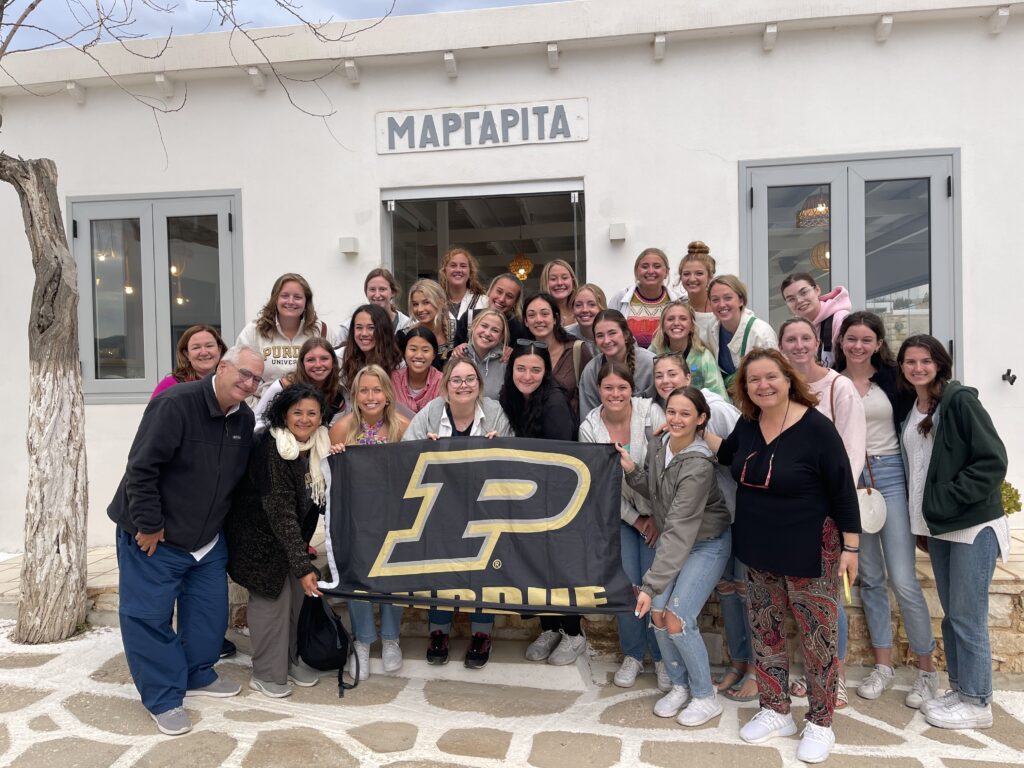
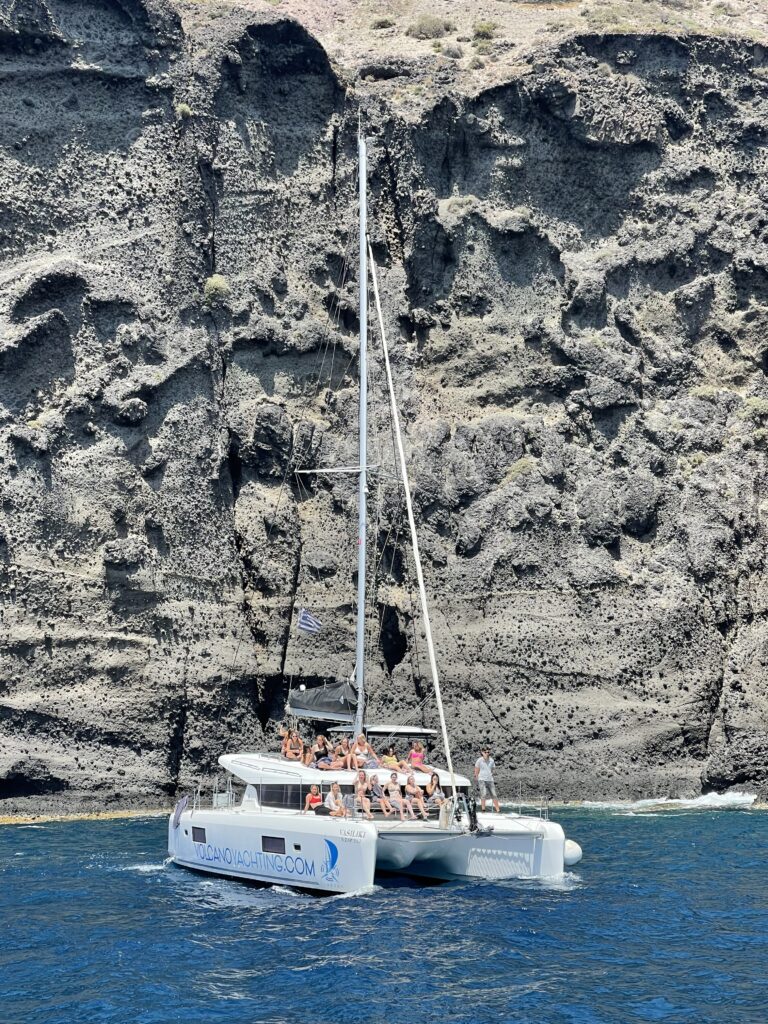
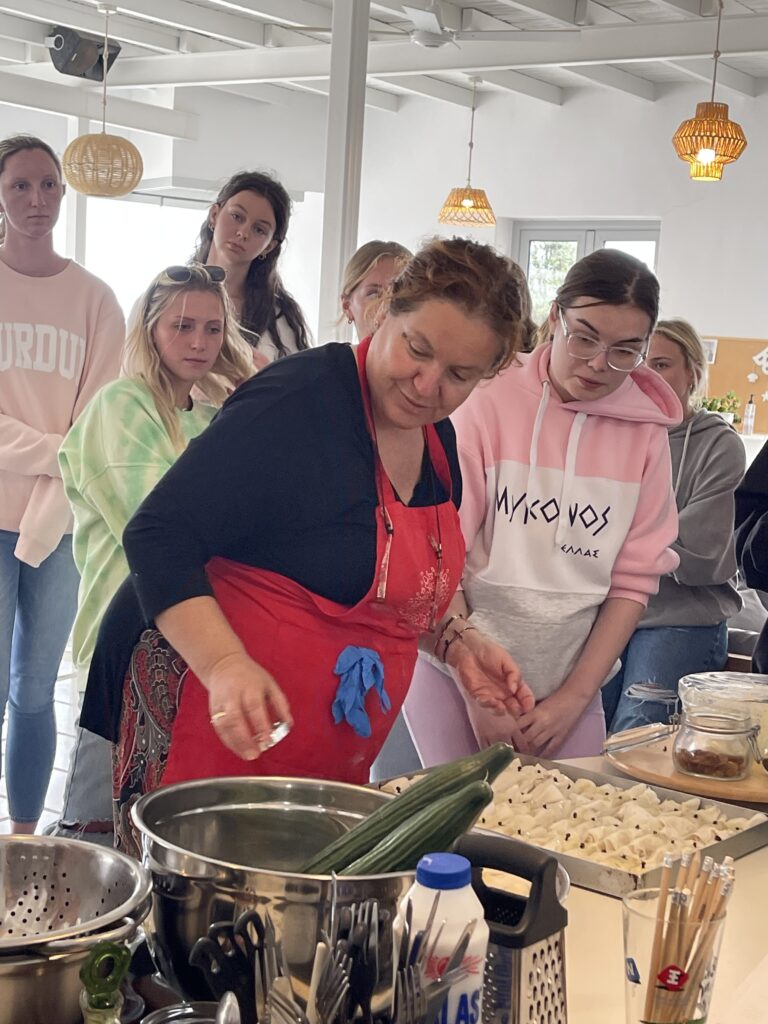
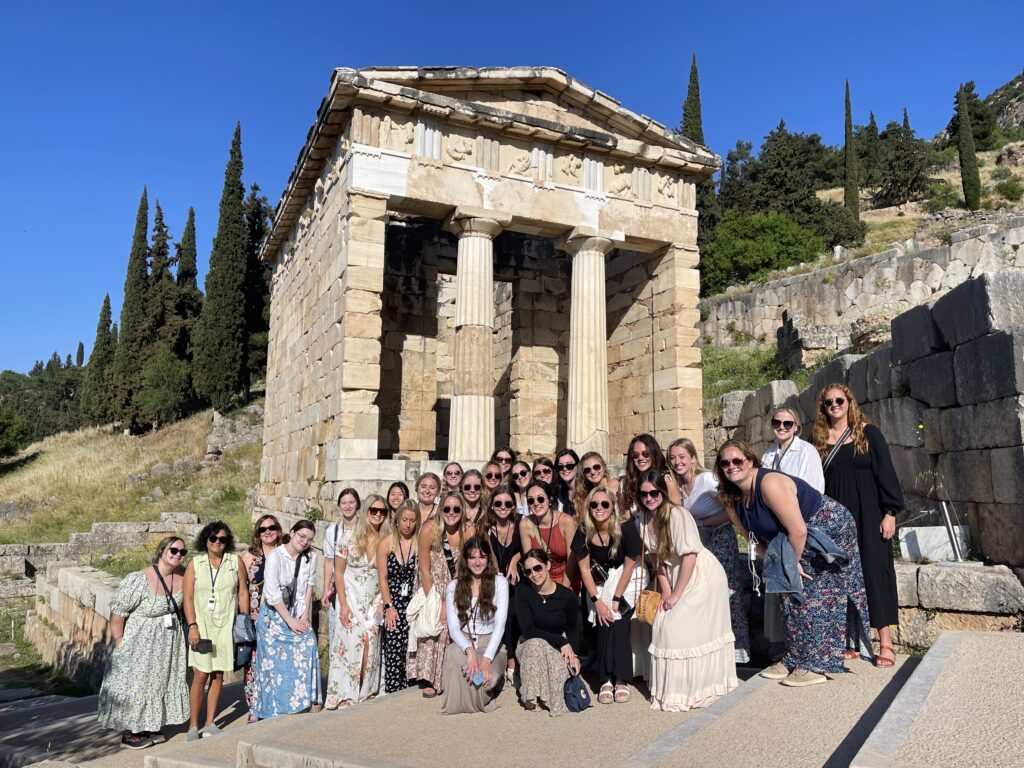
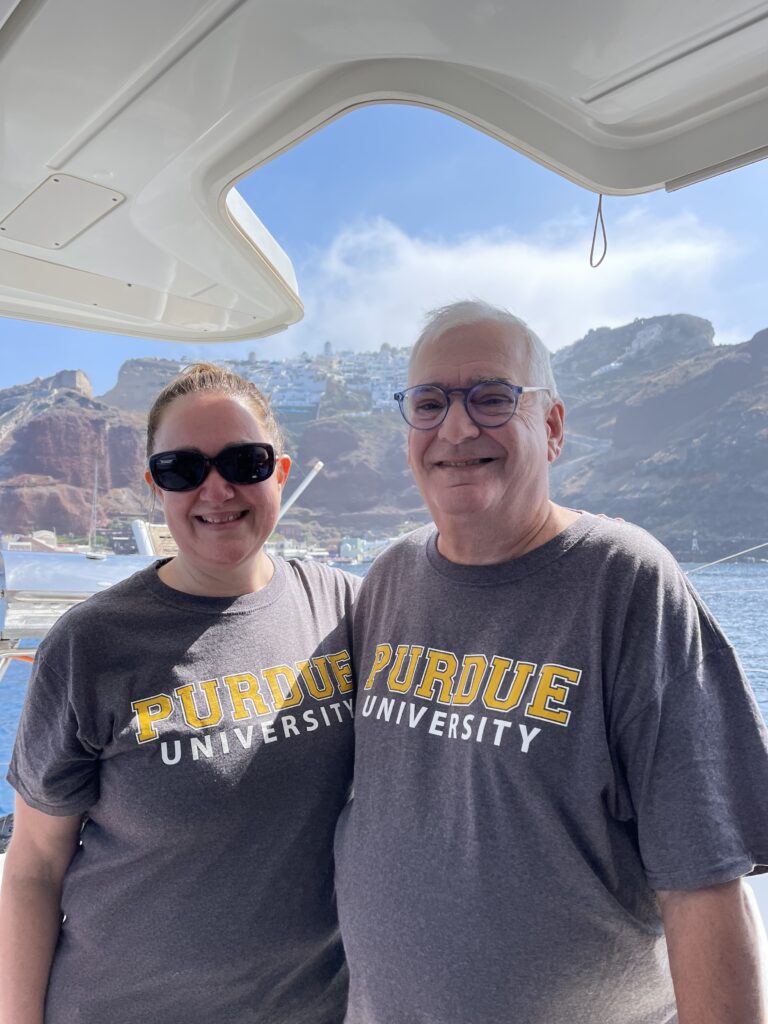
Seven different HHS programs were represented in Adler’s program to Greece. Adler was joined by fellow HTM faculty member Susan Gordon to lead the students to various Greek cities, sites and islands. The program was three weeks, which allowed students to return home for June internships.
The Greek program had the goals of providing intercultural learning and lived experience. Nursing senior Madison Orstead found much more.
“I think I am more open-minded about things from just being around a different culture in a different part of the world for three weeks,” she said. “It definitely brings a different perspective being back in Indiana. They just had a very relaxed attitude. They were not super stressed out; they were not about the hustle and bustle like we have here in America.
“There’s always a deadline here, but there, they were on their own time. They worked, but they enjoyed what they did. In my major, I have a lot of responsibilities, but this trip reminds me that there can be and should be a balance between work and life.”
After getting the opportunity to take an international cruise as a high school senior in Indianapolis, Orstead went into her first year at Purdue with study abroad on her mind. COVID-19 canceled those ideas quickly.
However, restrictions were lifted a couple years later, and Orstead signed up for Adler and Gordon’s Greece program. While some programs are anchored in one city or university, other programs such as Orstead’s moved locations to ensure a diverse experience infused with one of the most ancient nations on the planet.
“We saw so many things,” she remembered. “It’s a really good way to immerse ourselves in all of the cultures of Greece, from being on the mainland to being in the mountains and being on the islands.”
Orstead and her fellow study abroad students sampled historic sites such as the ancient Meteora monasteries and talked with historians and researchers. They met families and fellow university students. All of this was poured into journals and reviewed in presentations at the end of their stays.
“We had to write about everything we learned,” Orstead said. “I’m excited to have that book to look back on because I just learned so much. I can go back and read about any time I want to and feel like I’m right back there because we had to be super-detailed about the areas we studied.”
While some programs get seven weeks abroad, this program was only three, so moving around the country about the size of Alabama brought optimal experience, one that Adler hopes to repeat next May.
“It’s a growth experience for the students,” he said. “And when they get back, we want them to be ambassadors for HHS study abroad.”
Morocco
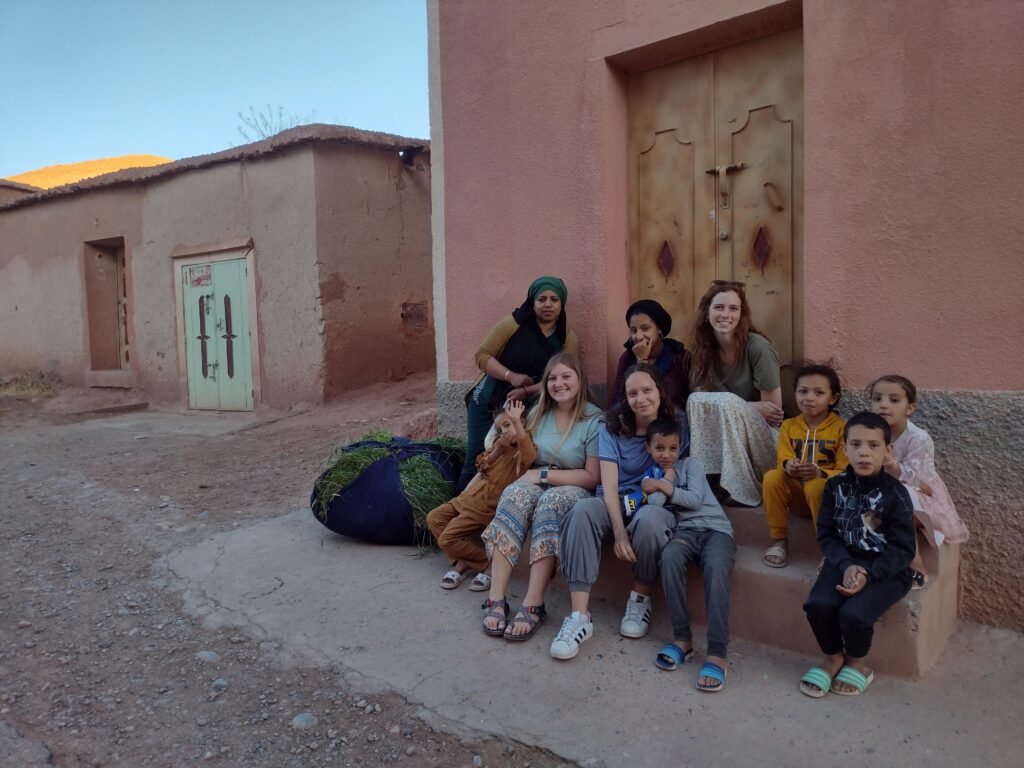
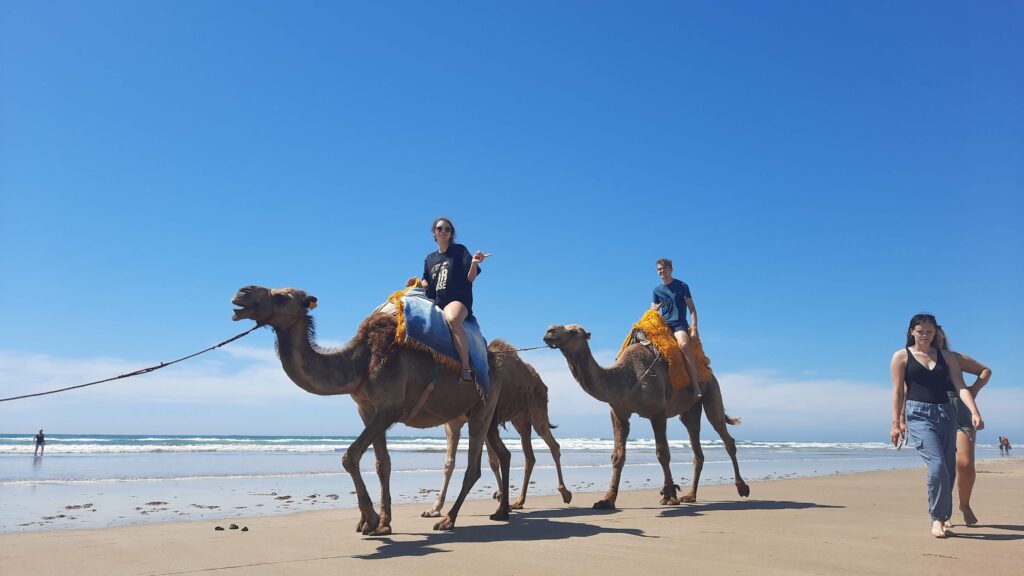
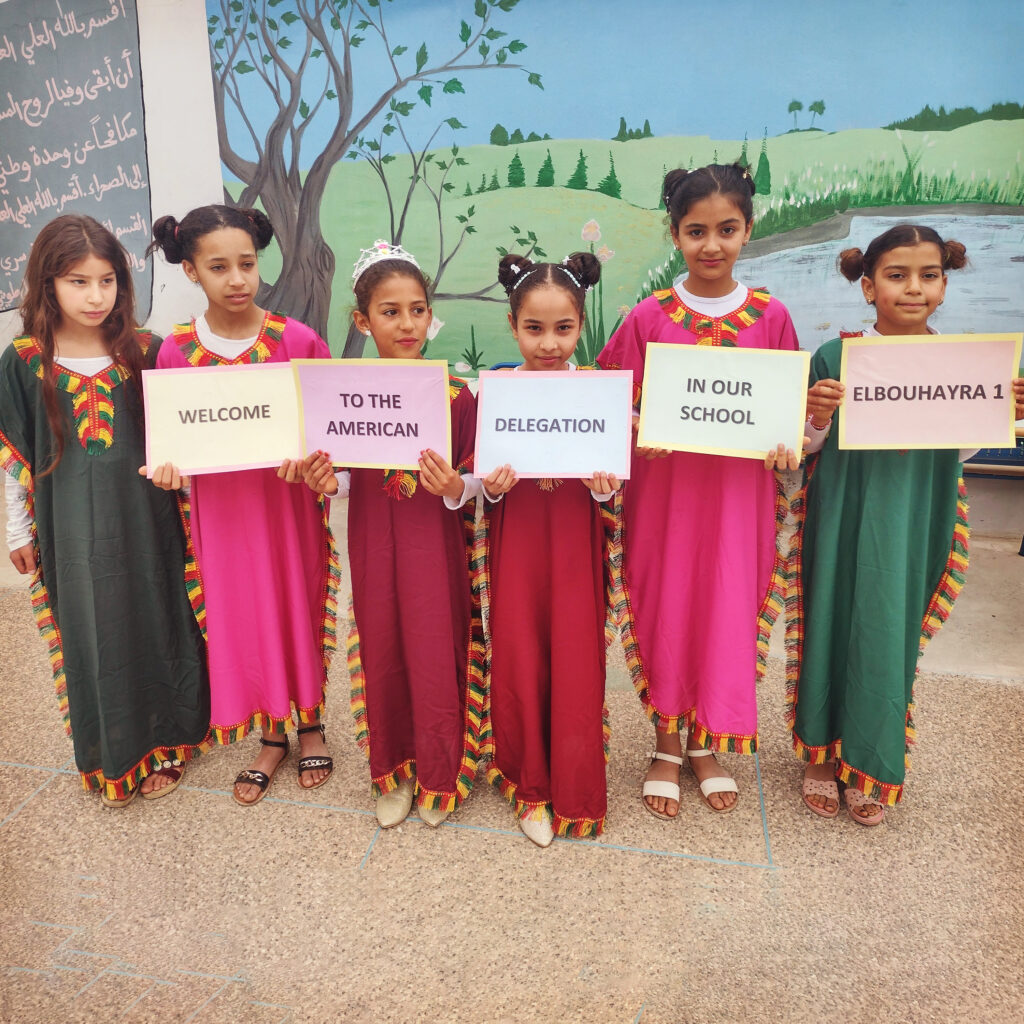
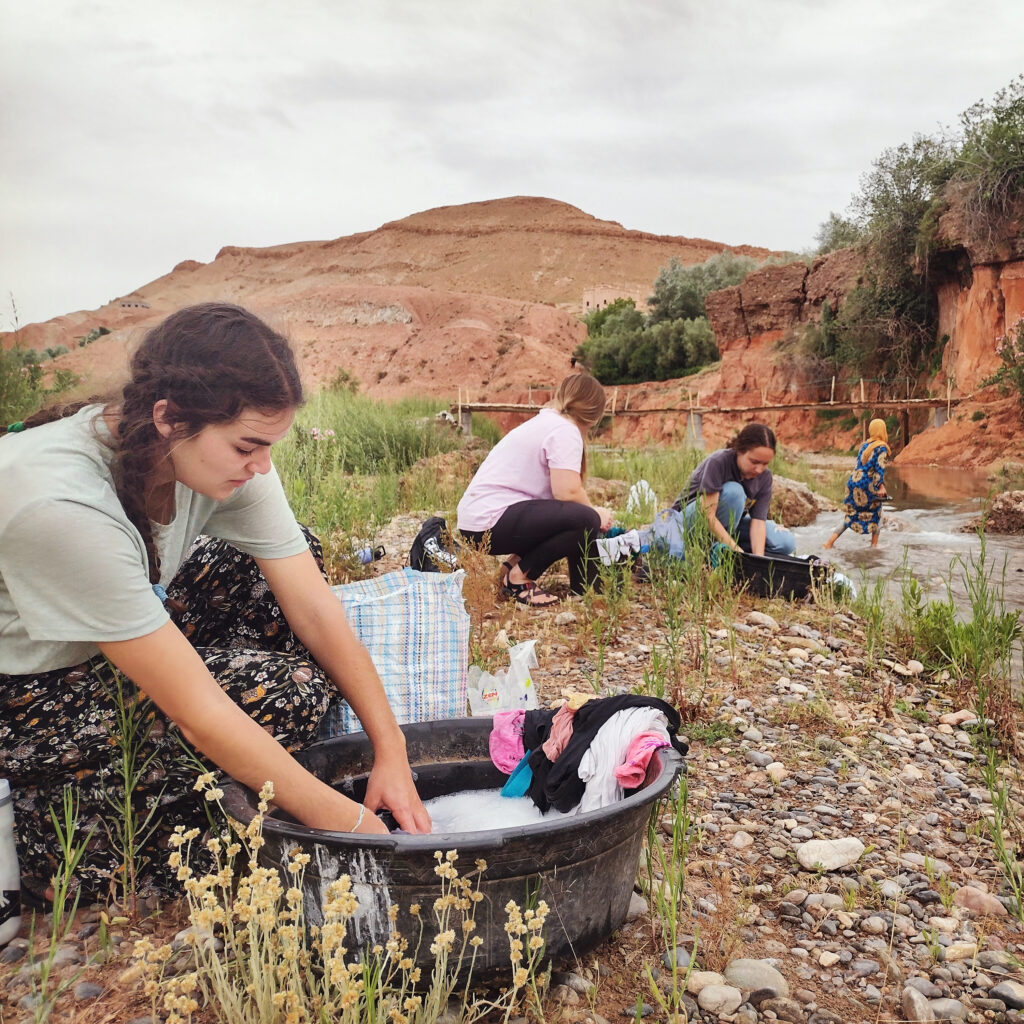
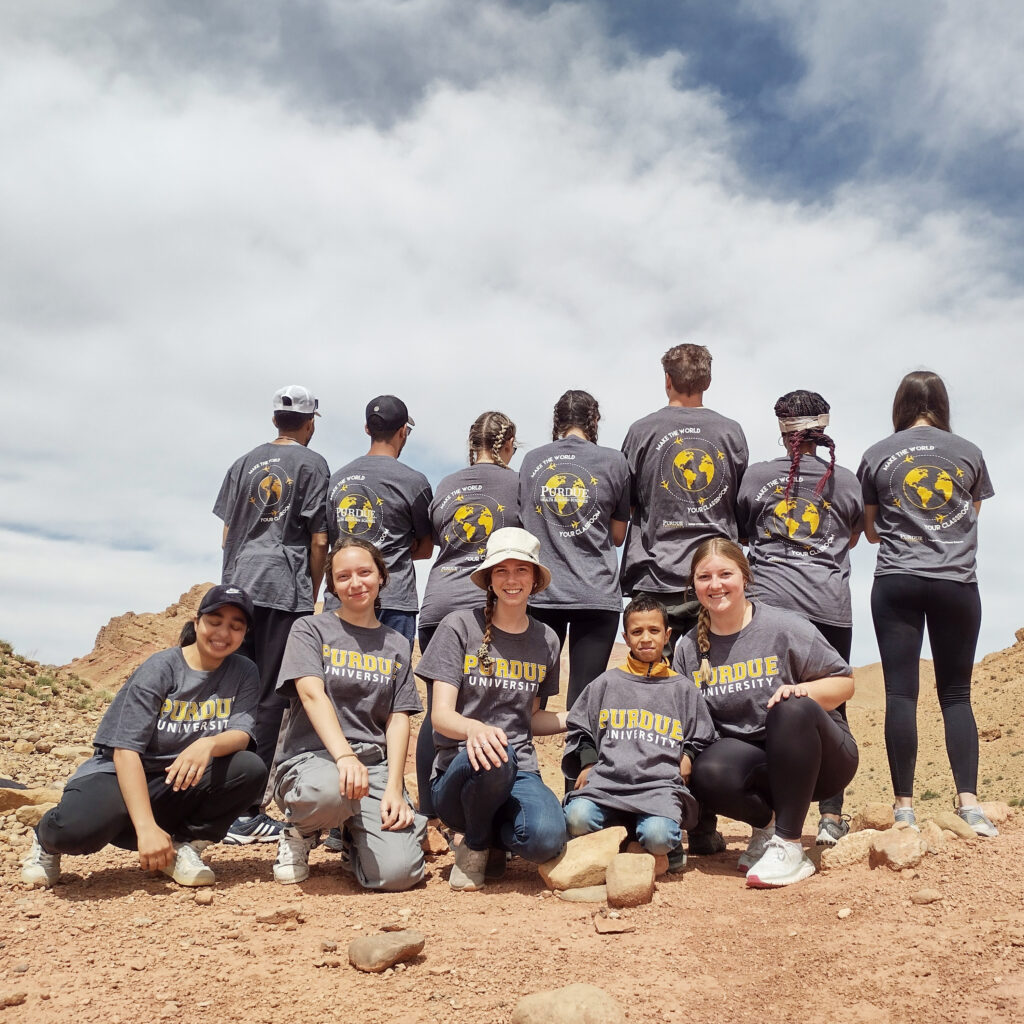
The Department of Human Development and Family Studies (HDFS) debuted its youth development study abroad program in Morocco during Maymester. Five HHS students spent 20 days working in a school, staying with families in urban and rural settings, and serving and observing communities in and around Fez, Marrakesh and Rabat, the country’s capital.
Riley Plummer was another student who had study abroad on her mind when coming to Purdue. The pandemic derailed plans, but she was able to get that experience in Morocco, even after her May graduation from HDFS.
“I was very excited to be able to go on a study abroad trip since it was my dream when coming to college,” Plummer stated. “My freshman year is when COVID started, and I had my first study abroad program already planned, and I was very upset when I didn’t get to go on it. Since I graduated in three years, this trip was my last and only chance to study abroad. I felt extremely blessed and super happy I was able to fulfill that part of my college dream.”
Alexia Robinette is one of thousands of undergraduates who only knew COVID-19 protocols during her first years at Purdue. The Department of Speech, Language, and Hearing Sciences (SLHS) and HDFS major was worried she wouldn’t get the coveted study abroad experience. Luckily, when international travel reopened, the junior was able to see how another country teaches its youth and how those children learn. She chose the HDFS Moroccan opportunity for its unique nature and the fact that the nation was somewhere she thought she’d never get to visit.
A favorite activity for the Purdue students was painting murals at a primary school outside of Rabat. Purdue students and Moroccan students picked up brushes and beautified the school inside and out. Members of the community watched as the school got a colorful makeover.
“All of us Purdue students, all of the Moroccan students and kids were all out there painting,” Robinette recalled. “That’s something that I’ve always been passionate about —volunteering and giving back to the community. That made me eager to do this specific trip.”
After the paint dried, the students threw a festive dance party where Robinette, Plummer and the rest learned Moroccan dances and, in turn, they imparted some down-home Indiana moves by teaching the kids the “Cotton Eye Joe” line dance.
Cinephiles know Morocco from “Casablanca.” Netflix fans know it from “Inventing Anna.” HDFS Clinical Associate Professor Natasha Watkins knows Morocco as a historic site full of culture, people and religion — all of which showcase the diversity of the African continent. She was delighted to see her students gel with their Moroccan counterparts and host families.
“Our intention with the trip was for our students to have the opportunity to understand what youth development and family life was like in Morocco. We wanted them to have really deep experiences with both parts of that,” Watkins explained. “We had so many moments of laughter, of joy, serious conversation where there was understanding. Our students adapted to new ways of life, of being and of doing. … It’s an amazing opportunity to have the world as your classroom.
Italy
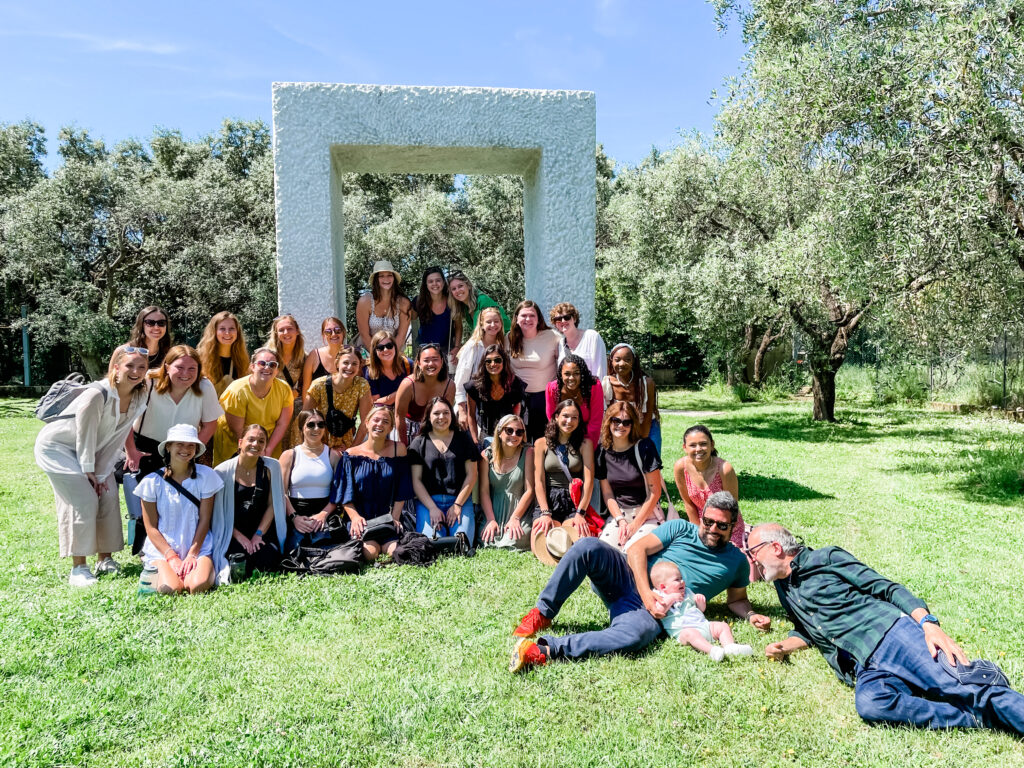
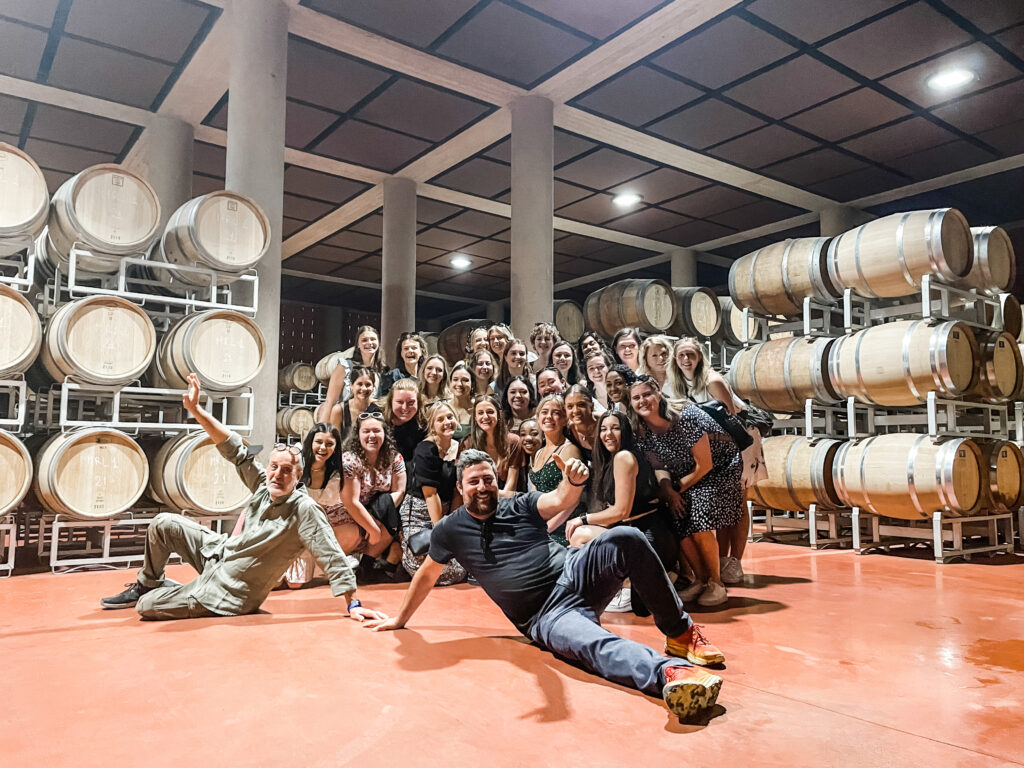
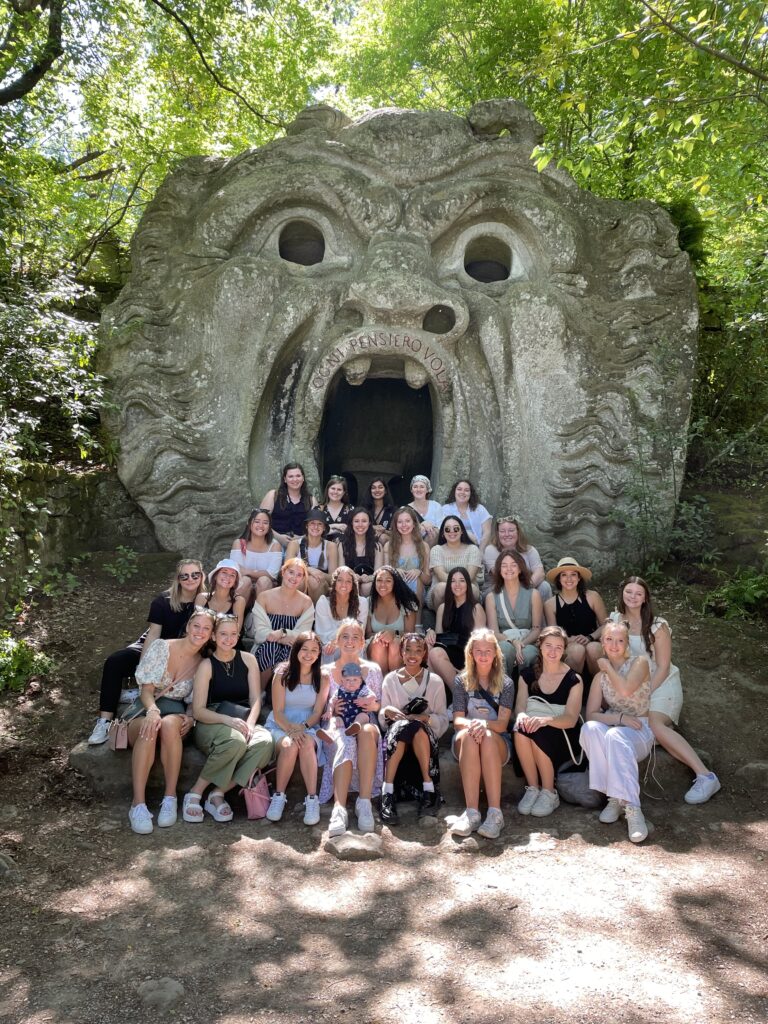
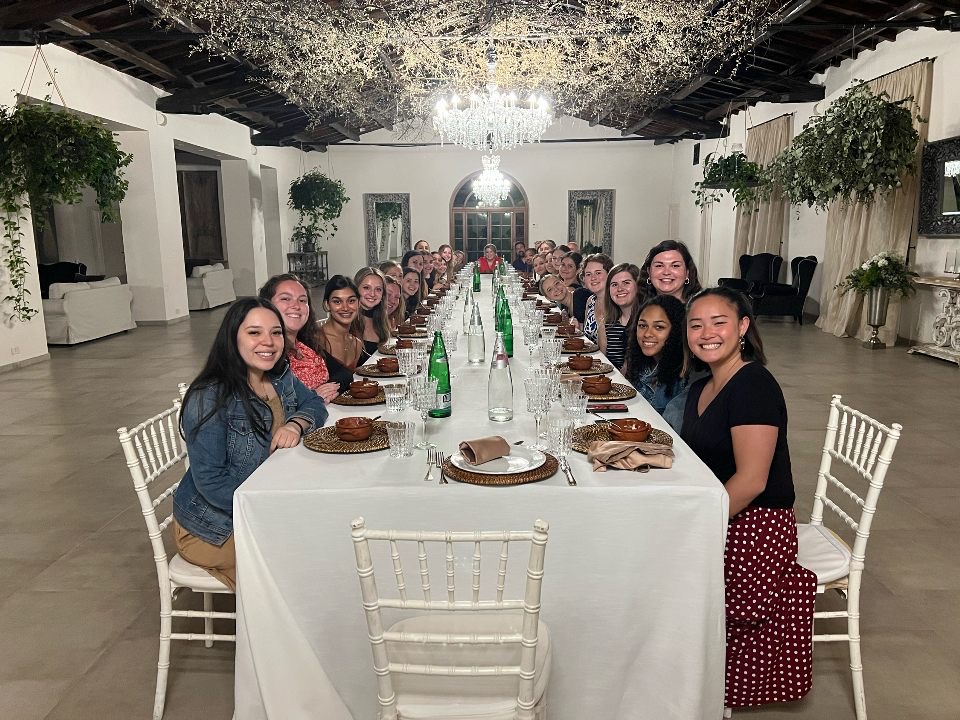
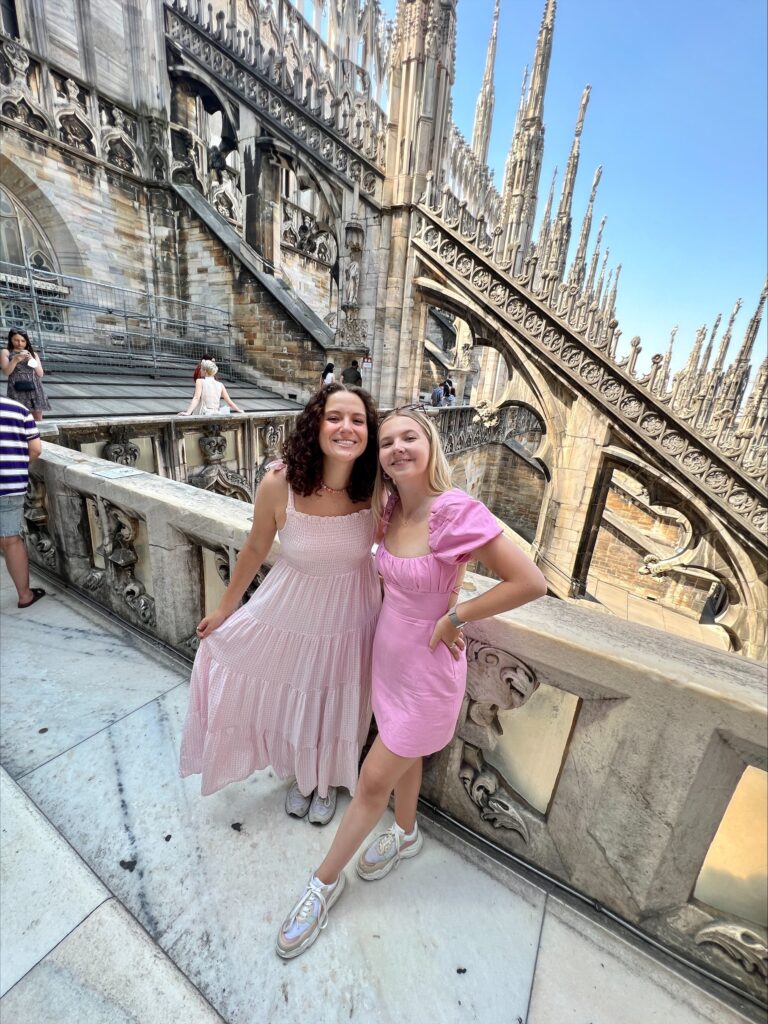
Giving HHS students the opportunity to conduct international women’s health research in a different part of the globe brought Public Health Associate Professor Andrea DeMaria’s program to Italy for a fourth time. During seven weeks of studies and research this summer, the students were housed at the Florence University of the Arts investigating women’s reproductive and sexual health issues — menstruation, to be specific. Each student took classes that ran Monday-Thursday with weekends for the students to explore Florence and beyond.
DeMaria led a program-record number of students, 28, around Italy. After landing in Rome, they traveled up and down the nation, from Lazio to Tuscany, learning about wine and olive oil agriculture while taking in numerous historic sites and gardens. This week of Italian travel was to acclimate the students enough to conduct research in Florence. Divided into seven groups of four, the students had to recruit participants — often having to use the Italian language — and interview them to collect data for their research projects.
“The goal of this project was to understand menstruation experiences from menarche, which is the first menstrual experience, all the way through menopause,” DeMaria said. “It is an important topic because menstruation has emerged as a global public health issue.”
DeMaria added that Purdue’s recent free tampon and pad initiative and COVID-19’s impact on the availability of menstruation products in Italy helped make the work timely.
Mackenzie Greulach, a senior in SLHS, was a participant in this program and leader of her research group. Each student recruited a female participant aged 18 or older to talk about menstruation practices, products and attitudes. Greulach’s group compared age groups to see how much menstruation is talked about between generations of Italian women. No stranger to SLHS research, the student had to shift her focus from quantitative language experiments to quantitative public health research methods — less numbers and more listening for key points in 28 one-hour interviews, essentially.
Greulach and her team found attitudes did indeed differ from an older generation to the younger, which fueled their 25 pages of findings.
“Definitely, our paper focused on different taboos — like is it taboo to talk about having a period? Is it not?” Gruelach explained. “We definitely found that it is generational, where older generations are a little bit more hesitant to talk about it whereas younger generations are becoming open about it, specifically with family and friends. We also found differences in attitudes between subjects from northern Italy and southern Italy.”
Back in West Lafayette, Greulach and DeMaria will edit the resulting paper and eventually submit it for publication in a research journal and presentation at an international conference. The experience from first landing to experiencing Rome and hitting “submit” on her research project was unforgettable for Greulach.
“Doing research in a foreign country definitely sounds a little intimidating, but it exceeded all of my expectations,” she said. “I had the most wonderful time, and I made a lot of good connections. … It was one of the most impactful things I’ve done at Purdue.”
DeMaria was thrilled to get back to Italy and see another cohort of HHS students enhance their worldview and research skills.
“It’s something that enhances the student learning experience,” she said. “It builds them up personally; it builds them up academically and professionally in terms of networking and connections outside of Purdue and with each other too.
“My students were yearning for those experiences.”
Italy has been a longtime favorite destination for HHS students and faculty alike. For several years, HTM Professor Richard Ghiselli and his students have also visited Florence and other stops for his food and culture program. While Florence is a tourist friendly city with cuisine like American Italian restaurants, smaller communities that the program visits offer different, more traditional foods. Portions are smaller, but there are more courses in such meals.
Ghiselli led 20 students in this Maymester study abroad opportunity. Along with the delicious food, students learned about Italian art and history. Ghiselli said the students were enthusiastic to take advantage of the program after the COVID-19 delay. They were even eager to practice their Italian with the Florentines.
“They were ready,” Ghiselli said. “They were ready to stretch.”
The students and their professor did meet some anxiety. Their return relied on a negative COVID-19 test to board the plane, but the study abroad experience is once again an essential part of the Purdue HHS experience.
“It gives them confidence,” Ghiselli said. “I think that’s paramount that they see how others live and interact. That’s invaluable as they go through their four years here.”
Discover more from News | College of Health and Human Sciences
Subscribe to get the latest posts sent to your email.